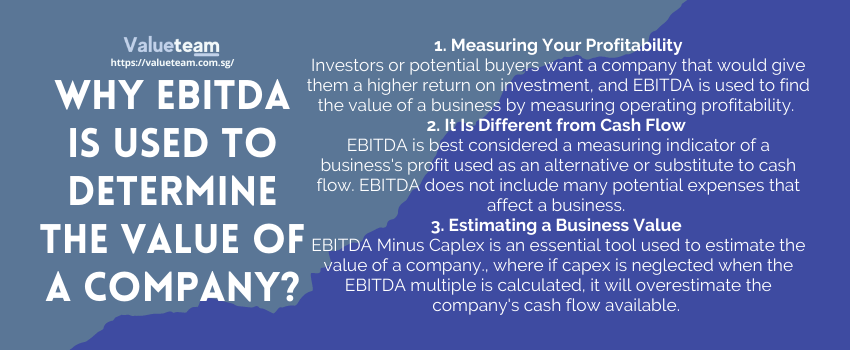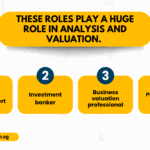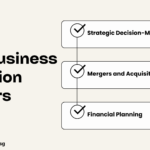EBITDA in business valuation: Why do we use EBIDTA in the business valuation? This is one of the most commonly asked questions by the business owner. EBITDA is widely used for business valuation. Investors have different ways of measuring the financial health of a business or company they want to buy or invest in.
Every wise investor will also look at the company’s cash flow and sales rate as without good sales, a company, is as good as dead. Investors also check the assets they want to buy and any outstanding debt. Besides the aforementioned traditional measuring factors considered before purchasing a company, EBITDA is used. EBITDA is a common measuring approach used in finding or determining the value of a company.
Some of the apparent reasons why EBITDA is used as a measuring metrics for business valuation by professional appraisers are:
1. Measuring Your Profitability
This could be considered the main reason for using EBITDA to determine the value of a company. Investors or potential buyers won’t love to buy what they would not profit from in the future. They want a company that would give them a higher return on investment (ROI). EBITDA is used to find the value of a business by measuring operating profitability.
EBITDA of a company is a copy of the company’s net income before accounting for interest payment, depreciation of assets, taxes, and other factors. By eliminating from the equation, these elements, this business valuation method gives a more precise result of a company’s operational performance.
2. It is different from cash flow
Although EBITDA is used for measuring a company’s cash flow, it is not the same thing with cash flow. EBITDA is best considered a measuring indicator of a business’s profit used as an alternative or substitute to cash flow. EBITDA does not include many potential expenses that affect a business.
3. Estimating a business value
EBITDA Minus Capex is an essential tool used to estimate the value of a company. Capex is any money spent by a company to buy, maintain and improve assets such as real estate, vehicles, equipment, and the rest. Capital expenditure can negatively affect a gigantic company’s earnings based on the industry. A company can overestimate the cash flow available when capex is neglected when the EBITDA multiple is calculated.





